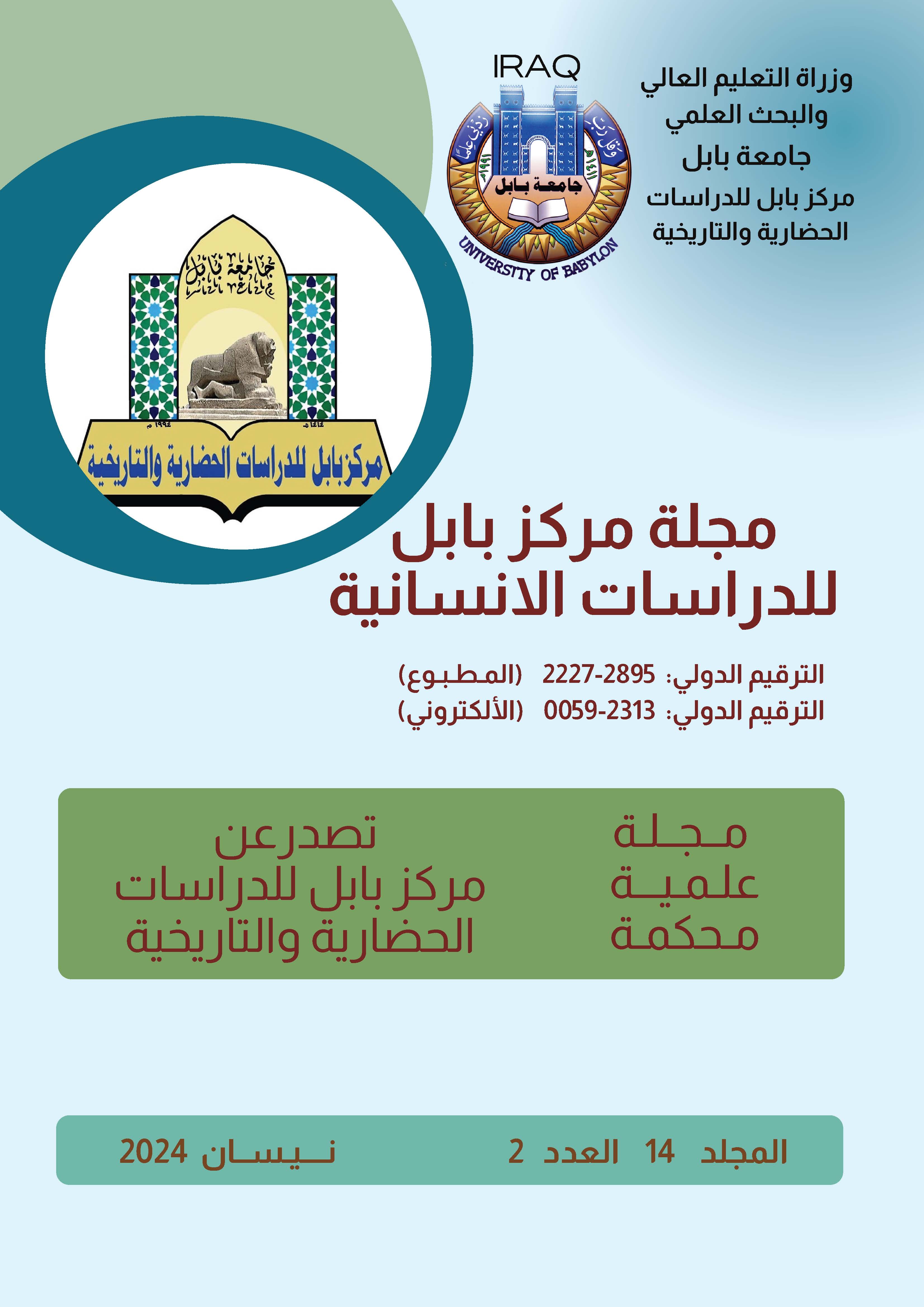النظرة الديستوبية في شعر فروغ فرخزاد
الكلمات المفتاحية:
المدينة، الدستيوبيا، فروغ فرخزاد، التشاؤم، التمردالملخص
ظهر نهاية القرن الثامن عشر وبداية القرن التاسع عشر مصطلحاً جديداً ضمن الحقل الادبي (الديستوبيا) وهو اللفظ المضاد لـ (اليوتوبيا) واللفظين متضادين في المعنى متقاربين في اللفظ ، لكل منهما مدياته في الحقل الادبي ففي الوقت الذي تشير معنى (اليوتوبيا) الى المدينة الفاضلة التي تبناها افلاطون ونظر لها . فالديستوبيا هي اللفظ المعاكس لها بمعنى انها تفضي الى معان عديدة منها (المدينة المحترقة ، المدينة المخربة ، المدينة المهدمة ، ...الخ ) من الالفاظ التي تبعث في النفس اليأس والتشاؤم لمستقل هذه المدينة . وقد تجسدت الديستوبيا في روايات ظهرت في اوروبا بين الحربين الكونيتين الاولى والثانية وهي نتاج لمشهد الخراب الذي خلفته الحروب على مستوى البنية التحتية والانسانية ، ففي الوقت الذي خربت به المدن نتيجة الحرب كذلك خرب الانسان, وتبنى عدد من الروائيين الاوروبيين انتاج روايات خاصة بالديستوبيا تعكس نظرة التشاؤم لمستقل المدن التي تعرضت للحرب .ان اشعار (فروغ) تقع في برزخها الخاص.. تقع بين دنى الطفولة البريئة الساذجة البسيطة الوضاءة ودنى الحاضر الواعي الملغوم بالاوجاع والشرور والتشوه.. وما دامت الطفولة، بكل اوصافها، لم تعد مقدوراً عليها في السلوك الحاضر الناضج، فإن الممكن ازاءها هو الاستغراق في التذكر لمواجهة القسوة الحاضرة الشاخصة، فإن لم يدم هذا الاستغراق، فإن امام الشاعرة مزية الاستغراق في الطبيعة، تمرر من خلالها شحنات روحها المتأزمة، بحثاً عن التوازن المستحيل.. فلقد وجدت الشاعرة (فروغ) نفسها او اكتشفت نفسها فجأة بعد زواجها المبكر.. وجدت روحها محاصرة بالاوجاع والشرور والتشوه، فكان طلاقها وكانت رحلتها المحمومة والخطرة على برزخ البراءة الماضية/ القسوة الحاضرة. ان العودة التذكرية للطفولة لم تكن حلاً كافياً لأزمتها الدائمة التي سببها هو الحاضر المليء بالتشوه، فكانت تلجأ الى سمو آخر غير سمو الطفولة، فكان لها ان تجول في الطبيعة وتخترق جزئياتها القادرة على احتضانها وحمايتها من قسوة ما آلت اليه وما آلت اليه الحياة بمعناه الفردي والجماعي. فقد انطلقت الديستوبيا في شعرها من التمرد الديني والتمرد الاجتماعي والتمرد الذاتي الذي انجزم على ان مرده هو النشأة التي نشأت عليها فروغ فرخزاد لتشاؤمها فانتجت نصوصاً تنتمي الى حقل الديستوبيا دون ان تشعر .المراجع
التنزيلات
منشور
2024-04-30
إصدار
القسم
Articles







